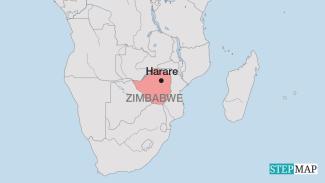Migrant’s anger
Who else profits from remittances

Zimbabwe is one of the largest African country receivers of remittances from citizens abroad. Per year, migrants transfer more than $ 1 billion into the country, according to the Institute of Development Studie based at the University of Sussex, UK. These earnings have surpassed traditional revenues of the Zimbabwean economy such as tobacco export.
Majority of Zimbabweans migrate to Europe, USA and South Africa to find jobs. Many must do multiple jobs to meet their needs and save some money to support their family back home. They are frustrated that the billions they are wiring home are benefiting the country’s tiny but very rich ruling elite.
Cecilia Moyo, a nurse from Zimbabwe who works as a caregiver in London, tells this writer via WhatsApp: “There are now thousands of us.” She says that highly trained nurses from Zimbabwe are taking up nursing homecare work at a salary vastly below their skill set. Moyo earns a net salary of 2000 British pounds which supports her and five family members in Zimbabwe.
Gerald Vhumai, a taxi driver in Ottawa, Canada, also narrates his experience. “My salary of $ 3000 feeds six family members back home in Zimbabwe – and the sharks.” The “sharks” means Zimbabwe’s ruling elite who are harvesting millions taxing global remittances through money-transfer platforms such as World Remit and Western Union. These are popularly used by Zimbabweans in the diaspora to send money home.
Clemence, a social activist in Harare, argues that a small elite is getting rich at the expense of other citizens. He gives the example of lavish homes, some with helicopter landing decks in a city owned by rich families. The contrast of such wealth in a rundown city that has not provided tap water for residents in two decades, demonstrates how dire the situation is.
Leano Shange, a schoolteacher, points out that an avalanche of offices of global remittance companies such as Western Union, World Remit, Ria Money, Hello Paisa and others have displaced other industries and trades to take up office space in every city in Zimbabwe. “The ruling elite is doing fantastically well, thanks to tax on billions of remittances sent by disgruntled citizens abroad. See the Landrovers, suits, up class new restaurants popping up in Harare and of course the money bureaus,” Shange says, adding: “It’s now a remittances country – the entire nation.”
Reward Gula, an independent economist in Harare, describes the dilemma that citizens find themselves in: “The reasons thousands of Zimbabwe nurses, teachers, doctors, engineers are leaving Zimbabwe for the diaspora is that they are disgusted with the corrupt rule of the ZANUPF government. However, when they arrive in Australia or Paris, they must send part of their salary to relatives at home in Zimbabwe – and the same government in Zimbabwe gets rich from taxing remittances.”
Gula compares Zimbabwe to countries such as Lebanon where the “export of citizens” is now de-facto an unspoken money-minting policy by ruling elites.
Progress Mwareya is a freelance journalist based in east Zimbabwe.
progressmwareya2@gmail.com








